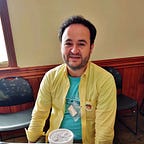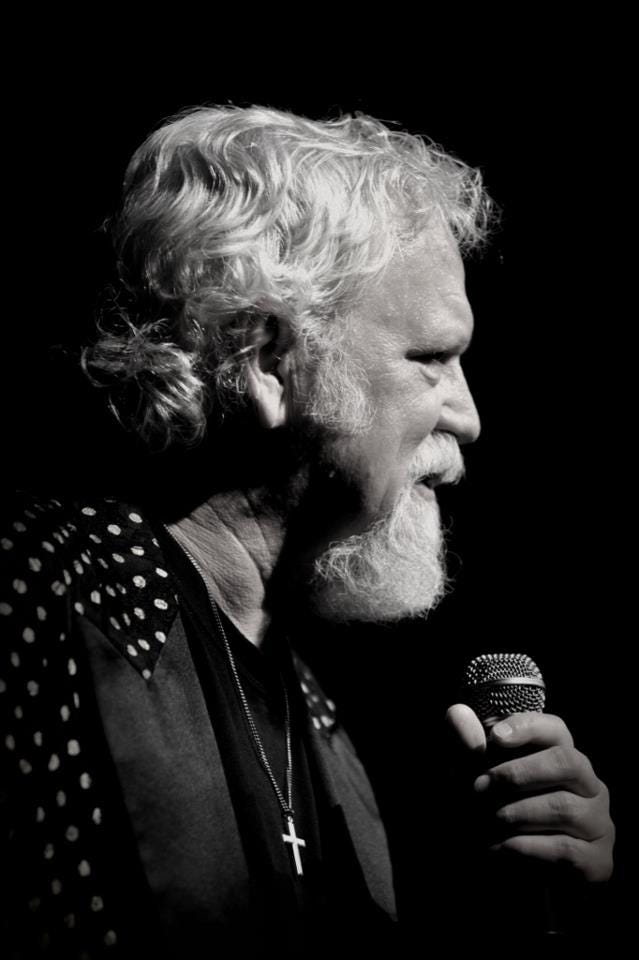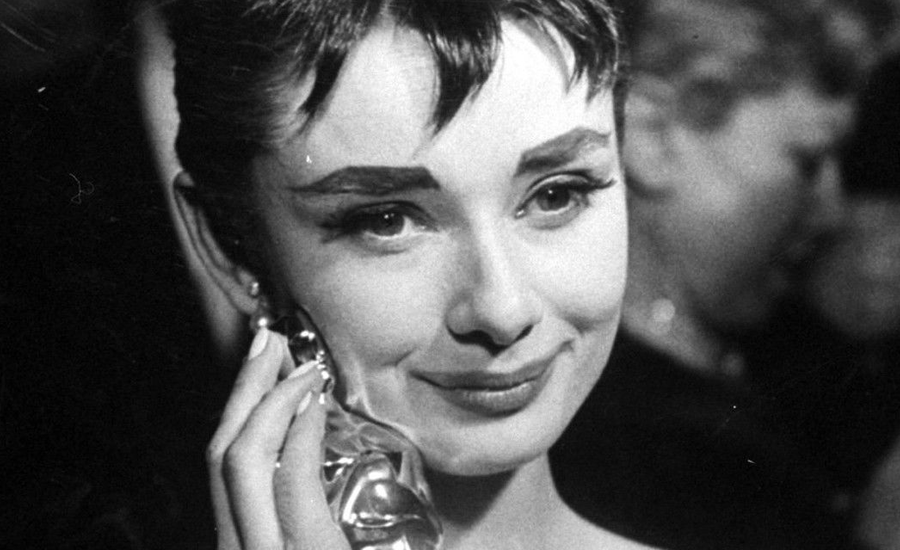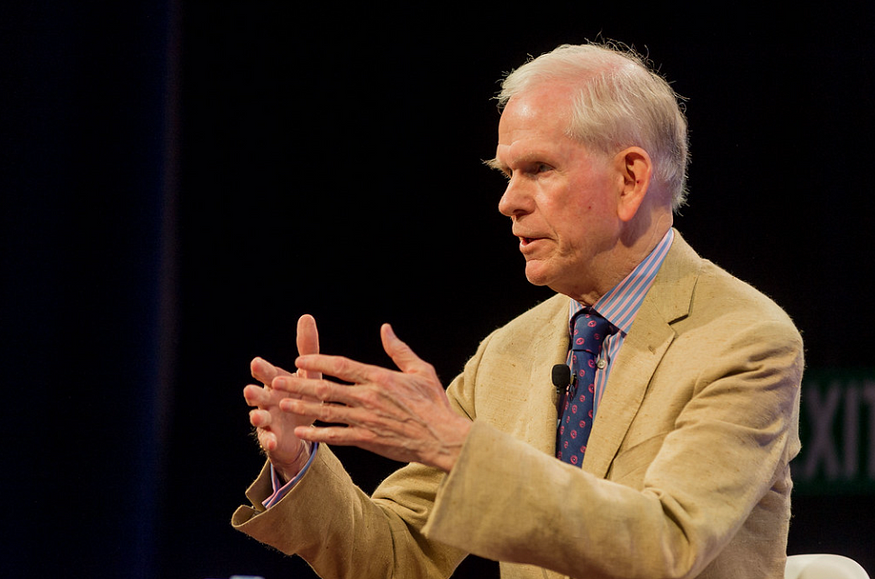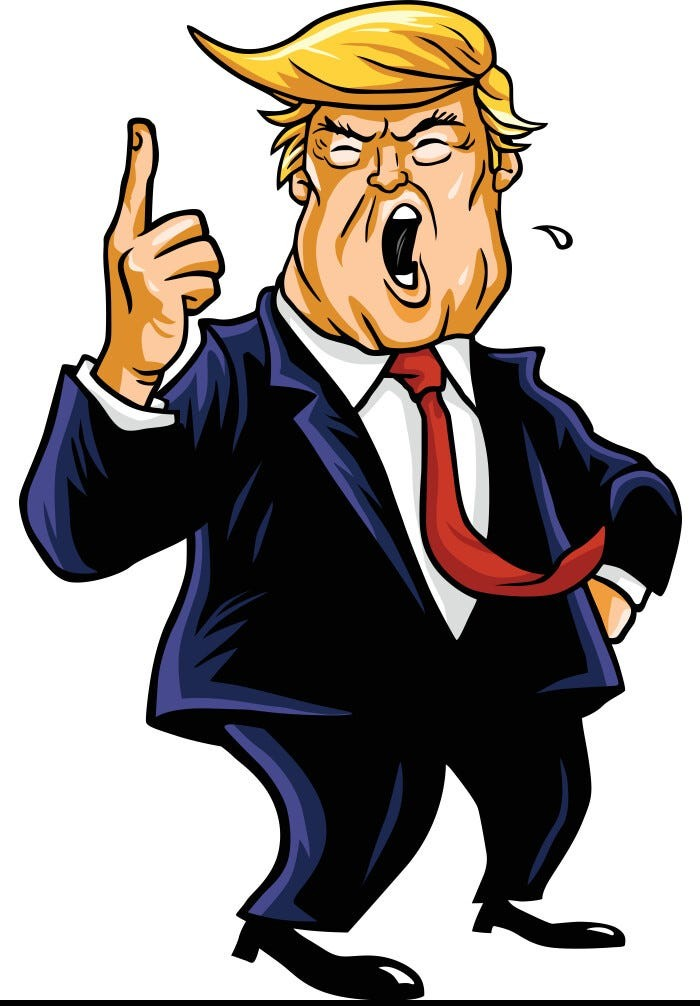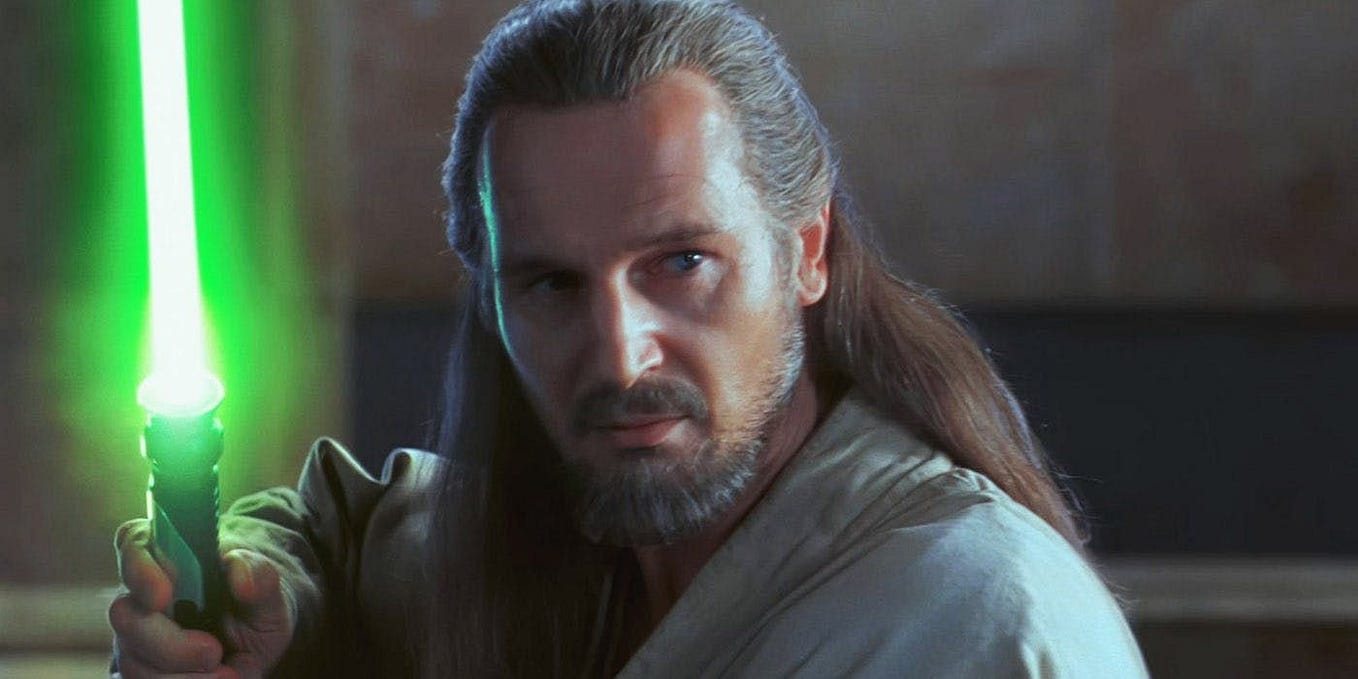That guy you’ve seen but can’t remember his name: Inside cult actor Warren Oates
Though never a household name, cult actor Warren Oates lit up the screen in a 25-year career inexplicably extinguished much too soon by a massive heart attack at age 53 on April 3, 1982.
The American New Wave actor’s preeminent biographer, Susan Compo, exclusively elaborates in a fascinating interview about Oates’ hell-raising and humanity, best and worst movie roles, working alongside the mercurial Peter Fonda and Dennis Hopper, and what she might have said to Oates if their paths had intertwined.
Compo released the first-ever biography devoted to the notoriously private individual, Warren Oates: A Wild Life, in 2009 — over 500 pages chock full of extensive notes and interviews with family and close friends.
Oates’ hardscrabble Depression-era upbringing in the predominantly coal-mining community of Depoy, Kentucky, no doubt influenced his honest, scene-stealing characterizations as the voyeuristic deputy of In the Heat of the Night, a good-natured outlaw gang member in The Wild Bunch, the psychotic pill-poppin’ villain in Lee Van Cleef’s Barquero, a roguish, tall-tale spewing car driver in Two-Lane Blacktop, the sympathetic, eerily facsimile gangster called Dillinger, and Bill Murray’s constantly exasperated nemesis in the comedy blockbuster Stripes.
These notable portrayals didn’t come easily, as Oates toiled up the Hollywood ladder as a character actor for nearly 15 years in film and television productions, often in Westerns as a big-mouthed antagonist possessing a limited education. Oates’ complete immersion in a role, no matter how inconsequential, guaranteed that audiences would identify with at least one redeeming quality. Oates’ charisma never failed to leap off the screen.
Exhilarating collaborations with maverick directors Sam Peckinpah [e.g. Ride the High Country, The Wild Bunch, Bring Me the Head of Alfredo Garcia] and Monte Hellman [The Shooting, Two-Lane Blacktop] cemented the in-demand actor’s timeless legacy.
In an interview for the 1993 documentary Warren Oates: Across the Border, the late Harry Dean Stanton told a revealing anecdote illustrating why he still admired his buddy a decade after his passing.
As cantankerous, working class fishing guides, the comrades-in-arms were filming Thomas McGuane’s 92 in the Shade in 1974, smack dab in the breezy, humidity-soaked Florida Keys. Stanton stated, “We had a scene together. I remember going to Warren and saying, ‘I don’t know what the hell to do in this scene. It makes no sense to me whatsoever.’ Warren replied, “Harry Dean, just remember one thing — whatever you do is right.’”
The Susan Compo / Warren Oates Interview
If you were asked to describe Warren Oates to somebody unfamiliar with his work, what would you say?
You know that guy. The one you’ve seen but can’t remember his name. He seemed so natural.
Was Warren destined to be a cult actor?
I think he was too real, and maybe not pretty enough for the marquee.
Did Hollywood affect Warren, or did he remain a Kentucky boy at heart?
It did not affect him at all. Warren loved the sense of community he had in Depoy, a town of less than 1,000, predominantly coal-mining. Residents would pull together for projects like making mattresses. Plus, his best friend, Bobby Lloyd Coleman, lived nearby, and Warren would alternately play with and torment his pal.
Greenville and its Palace Theatre were within striking distance. Warren left at age 13 and hated the big city, not least because he dressed and talked like a hillbilly.
In his later years he was adamantly against mountaintop removal, but he had a deep respect for the miners and working people in general. It upset him that rural people were often the first to have to go to war since the military provided a way out.
In retrospect, what were Warren’s feelings about his humble upbringing?
He was extremely proud of coming from Depoy and returned several times, with his kids, with his brother, and even to marry his last wife, Judy, at the Oak Grove Baptist Church. As a boy, Warren always arrived at church early to light the fire in the winter, open windows in the summer, and ring the church bell, tasks for which he was paid 75 cents. He often played the piano when nobody was looking.
Warren recalled that “the church was right across the creek from my house and the cemetery was up on the hill, and I could see both of them. Joy and fear…it was a time of some of the purest moments in my life.”
Today the church is still in Depoy but houses have all been burnt down. There are a few hardscrabble trailers and very little optimism. Depoy today would have troubled him.
Warren’s industrious father, Bayless Oates, operated a general store and gristmill. How did the unexpected loss of Bayless affect his 22-year-old son?
Warren was deeply affected. He was a young man at the time, just starting out. That his father, a robust man, died from a fall off a ladder at the family home in Louisville, was hard to take.
How did you become such a dedicated fan of the actor?
Well, my father used to have drinks at New York’s 21 Club, where Warren checked coats circa 1954. They bonded over both being Marines. At that time I was a newborn back in Brooklyn. I wonder if the young man sharing a drink or two with my dad knew that the baby back in the borough would be his biographer. I loved Warren ever since seeing Two-Lane Blacktop at the drive-in in summer 1971!
Was it easy convincing a publisher that Warren needed a biography?
Well, it took eight years. I went with the University of Kentucky Press as Warren was a Kentuckian. I’m very proud of A Wild Life, and I still think it has a good future.
Who were some of your favorite interviews for the book?
I probably did 100-plus interviews, and the book took four years. I was star-struck over L.Q. Jones and Monte Hellman. The former was candid and so funny about stories from The Wild Bunch. I loved L.Q.’s Hollywood house and his largesse in taking the time to go over well-worn topics with me.
I really enjoyed Bo Hopkins, Millie Perkins and Dennis Hopper. I love that Dennis was Warren’s tenant in the latter’s Hollywood Hills home. Dennis told me his landlord would find reasons to pop by and check on him. Dennis loved Warren.
I also spoke with Leslie Caron from her Paris apartment — legendary. Warren’s pal Bob Watkins is the hero of the book to me, since I think he kept Warren grounded and calm, and he did the same for me.
Was there someone you wanted to interview, but for various reasons, it didn’t occur?
I didn’t get Peter Fonda or Isela Vega — “Elita” in Sam Peckinpah’s Bring Me the Head of Alfredo Garcia. Isela is beyond reproach.
Fonda knew so much about Warren, but he stood me up on the phone a couple of times. I just think of Bruce Dern saying, “With Fonda, it’s mostly the Rexall” [i.e. a former drug store chain].
[Author’s Note: In June 2019 Fonda wrote on Twitter, “When Warren died, in his will he left me ‘all’ his love. It’s things like that that carry me on in times of trouble and madness. My father wept when he saw The Hired Hand. Can’t get a better review than that…”].
What was the most difficult part in writing his biography?
The parts I may have missed. Also, days and weeks where I didn’t know what happened. Fortunately, Warren’s kids are very proactive where he is concerned, and they were a huge help.
What was the story behind picking the picture of a bearded, wild-eyed, grinning Warren as the cover of A Wild Life?
This came from Warren’s eldest son, Timothy. In felt pen, Warren had written, “Okay to Print,” which I took to mean he liked it. And that’s enough for me. I scanned a bunch of photos and gave them to my friend, an art director named Peter Wilson.
It was actually his great eye that selected the cover and also whipped the photos into shape. I did have a lot of help from friends doing favors when I worked on the book [Author’s Note: It is quite possible the picture dates from August 1969 during the filming of Barquero. The black shirt appears to be identical, and Oates sported a scraggly beard in the violent Western. Incidentally, this was Oates’ first film role where he shares equal, if not more, screen time than the star — in this case Lee Van Cleef. He plays the meanest, near-psychotic villain of his entire career. Barquero has been shown on Encore Westerns numerous times].
How did Warren approach acting?
He was incredibly dedicated and serious. He always gave 100%, even in less than great films like Drum. It’s interesting that his favorite was the French actor Jean-Louis Trintignant! Very arty, and not what you’d expect from Warren.
Sam Peckinpah’s The Wild Bunch and Stripes are two bona fide classic films moviegoers have likely seen. How did Warren contribute to each of these box office hits?
I think he gave The Wild Bunch humor, menace, grit, and realism. As far as advancing his career, I don’t really think big offers came in after the film, but the respect of his peers was certainly there.
For Stripes, I don’t think you can picture anyone else as Sgt. Hulka. He enjoyed performing with Bill Murray and being, as he put it, part of the SNL generation. The success of Stripes would have led Warren to do more comedies had he not passed away unexpectedly from a heart attack a year later, and he would have loved that.
What are your favorite Warren film and television roles?
Featuring a realistic hero, Peter Fonda’s The Hired Hand was a very anticipatory/prescient Western that showed what could be done with the genre.
Monte Hellman’s Two-Lane Blacktop had those sweaters and an utterly engaging Warren performance.
Stoney Burke was a short-lived 1962–1963 stylish and extremely well-written television series that ran on ABC. It was such a cool, sparkling western of the ’60s with Warren as an endearing sidekick. Out of circulation for decades, it finally appeared on DVD in 2013.
Another essential that is available is the little-seen 1970 TV movie, The Movie Murderer, which starred a young Tom Selleck. Along with a motel and cocktail lounge setting, the movie had an intense Warren performance in what is far from being a big budget career maker.
Is there a Warren role that you think was a mistake?
Drum, a tasteless 1976 grindhouse flick parodying African American slavery during the 1800s, was terrible. No doubt about it.
Was there a Warren role that you didn’t like, but upon re-evaluation, you had a change of heart?
In Dixie Dynamite, again from 1976, he’s having such fun, especially since Steve McQueen was on set doing the stunt riding.
Did Warren have a missed film opportunity?
During the late ‘60s/early 70s, it would have been very interesting if he could have taken director Sergio Leone up on a film role. Leone approached Warren; unfortunately, he was tied up at the time. I don’t know much more than that, unfortunately, but I’ll lay odds it would’ve been a Western.
It took considerable courage for Warren to accept the role of Rooster Cogburn in the forgotten 1978 television movie True Grit: A Further Adventure. John Wayne won his only Oscar playing the iconic part a decade earlier. So, did Warren and the Duke meet?
I don’t think they ever met, and I’m not sure whether Warren was a fan.
The two directors most associated with Warren were Sam Peckinpah [1925–1984] and Monte Hellman. Could you characterize Warren’s relationship with these mavericks?
Sam and Warren had a fatal yet deep friendship. Two men who lost their fathers fairly early in their lives. Two ex-Marines. Two hard-living guys driven by their craft. Two men troubled by substance abuse as well.
On the other hand, Monte and Warren really were soul mates. I think they loved each other very, very much, and the bond was deep. I think it was deeper than what he had with Sam. Monte never turned on Warren.
I think his last wife, Judy Jones, labored to get Warren away from Sam when they were neighbors in Montana. I know there was a fight where an angry Peckinpah told Oates he wasn’t much of an actor, and also that Peckinpah had been rude to Judy.
Did Warren have any inclinations to move behind the camera, either as a producer, director, or writer? If he had lived longer, could you envision him doing this?
Oh sure. Warren actually wrote a couple of screenplays, never produced. They were kind of absurdist and even counter-culture-y. Torrey, Warren’s youngest child, wrote in an email to me that “he had a very humorous script in the works about three acid heads who lived on Sunset Boulevard with their dog.” Sounds like a bit of a stretch and maybe not the kind of story he’d want to be remembered for! Nevertheless, Warren would have loved to keep on working — in cameos, television, whatever.
What was Warren like on and off the silver screen?
The hell-raising and the humanity! He could get lost in a character. When he played Dillinger in 1973, he said he wasn’t much fun to be around and that it fed the break-up of his third marriage with Vickery Turner.
Throughout your research process, what did you learn about Warren that surprised you?
How very much people loved him and how politically, environmentally, and spiritually aware he was.
How would you classify Warren’s spirituality? Later in life, did he adhere to any particular Christian teachings absorbed from his childhood spent at Oak Grove Baptist Church?
Warren gravitated to Zen Buddhism and was really a seeker. He was also interested in Joseph Campbell’s books on mythology and heroes. Had he lived longer he might well have come full circle back to his Baptist roots.
How would you characterize Warren’s relationships of the female persuasion over the years? And is there a particular underlying factor[s] explaining why Warren’s first three marriages failed?
Well, infatuation and womanizing! He loved a pretty face.
Did you come across any examples where Warren experienced unrequited love?
Hmm, good question. He was certainly crazy about Becky McGuane, wife of buddy Peter Fonda. She was probably always aware of Warren’s feelings. She had quite a few suitors!
Was Warren a private individual?
He was very private. He’d try to disguise himself when he went out in public — hat, sunglasses. It didn’t always work. But he was generally polite if he got caught out.
Can you envision Warren adapting to this modern age of social media sites like Facebook and Twitter where many celebrities have shattered long impenetrable walls by connecting with fans?
In a word, no!
Did Warren experience self-loathing or depression at any point in his life?
I think he was hard on himself if he didn’t get a part he was after, or if a film failed. He was also disappointed not to be nominated for an Academy Award for his performance in In the Heat of the Night.
He was also conflicted about his role in Bring Me the Head of Alfredo Garcia. Warren was very concerned about the reaction to it, and felt that the whole thing was a bit too outrageous. He was proud of his performance though. I know he was hoping for more of a love story between his character and Isela Vega’s. I wonder if his opinion might have changed over time.
As with anyone who tends to drink too much or over-indulge, there was probably a degree of depression lingering at all times.
Did Warren’s inclination for alcohol, marijuana, or any other substances interfere with his life or career?
It had to have impacted his marriages and parenting, although his children still love him deeply. I’m not aware that he ever tried to quit. It doesn’t appear to have affected his always strong performances, but it resolutely affected his health.
Do you think Warren knew that he wasn’t meant to be around very long in this world?
No, not at all. Incidentally, on April 3, 1982, I was in my home town of Tustin, California — Orange County — when I read of Warren’s passing in the L.A. Times. I was deeply sad.
What have you learned about Warren since the release of the book?
Shortly after the book’s release, I was at dinner with the Dog Brothers — Nick Redman, David Weddle, Garner Simmons, and Paul Seydor — a group of Peckinpah experts who contribute insightful commentary to DVD releases. Paul could have been the one who told me that 2001: A Space Odyssey was one of Warren’s favorite films! In case you don’t know, he has a new book out about the making of Pat Garrett and Billy the Kid.
Have there been any encounters with fans or perhaps someone who knew Warren that left an indelible impact on you in the book’s aftermath?
I’ve been touched by how many people really enjoyed Warren Oates: A Wild Life. Ed de Armond, the former mayor of Greenville, Kentucky, told me it’s the best book he ever read. Then an artist in England, Anya Lewin, recreated Chez Paulette — the restaurant/hangout her grandfather owned — as an installation at Plymouth University. It was a kick to go and read there.
What do you enjoy doing in your spare time?
I’m probably boring! Mainly I visit thrift shops, go to the gym, and worry. I’m part of a running club as I run a lot. It changed my life and helped me bridge the time between book projects.
You’re also known for your fiction writing. Do you prefer non-fiction?
I think Life After Death and Other Stories, my first book, has its believers. The novella is about Marilyn Monroe, punk-rock movie extras, grave-robbing, and would-be vampires. Too bad it came out in 1990! Nonfiction is more fun as it takes you out of yourself.
Can you share any info about your latest project[s]?
I was originally working on a book about green/natural burial, which is interesting and important. It is burial or cremation without embalming or anything chemical/unnatural. Examples include sustainable wood coffins or non-toxic glues.
This type of burial does not disturb the landscape in any way — no headstones or markers. Some green burial grounds give mourners GPS devices to find loved ones! I think it’s an important issue, and it is increasing in popularity. But the project seems stuck in the mud — endless opportunities for puns.
So I put my focus on a young adult novella called The Seniors. It’s about a wayward group of high school seniors and their connection to the residents at a home for the elderly…and it’s not really a comedy. I haven’t published it yet.
The Man Who Fell to Earth, a 1976 cult classic starring David Bowie as an alcoholic extraterrestrial seeking water for his ravaged, faraway planet, is the subject of your follow-up to Warren’s biography.
Earthbound: David Bowie and The Man Who Fell to Earth [2017] is a book about the making of The Man Who Fell to Earth, a movie that has held up over time. It was also the first British-backed film to be made entirely in the U.S., with an all-British crew. There’s also the lush and striking New Mexico scenery and Bowie’s, well, beauty. The book’s author, Walter Tevis, was also an intriguing and colorful character — and an underrated writer.
I uncovered some interesting bits. I had the pleasure of speaking with actress Candy Clark, who was also with Warren in his penultimate film, Blue Thunder. They didn’t meet, however, and Warren was not in good health when that picture was made.
What do you imagine Warren might be doing as an octogenarian?
I wonder what he would have thought of HBO’s acclaimed TV series Deadwood — he would have been perfect but could have been conflicted about swearing.
But close friend Harry Dean Stanton worked steadily until succumbing to natural causes at age 91 in 2017…so Warren would have, too. Just as Harry Dean was in Big Love — an HBO drama that ran between 2006 and 2011 — I think Warren would have found a home on a cable show [Author’s Note: In “Two-Lane Backup: The Steadfast Friendship of Harry Dean Stanton and Warren Oates,” Compo paints an eye-opening account of her visit to the Repo Man’s modest, albeit multi-million dollar Mulholland Drive home to conduct first-person research for A Wild Life].
Warren is loved by lots of hipster filmmakers and actors — Joseph Gordon-Levitt is a huge fan. Incidentally, the annual Harry Dean Stanton Fest occurs in late spring in Lexington, Kentucky — I’m sure there will be traces of Warren for those interested in attending.
What are Warren’s children and wives doing today?
Timothy and Jennifer, Warren’s children by second wife Teddy Farmer, both work in film production in North Carolina. I suspect Torrey and Cody, Warren’s children with fourth wife-widow Judy Jones, are doing something meaningful. Judy lives a quiet life in Massachusetts, and I’m sorry to say that Teddy passed away in 2011.
What is the status of character actor Greg Travis’ 2011 short film, Nobody Loses All the Time? Based on the fascinating behind-the-scenes antics during the filming of Bring Me the Head of Alfredo Garcia, you played the role of Katy Haber, Sam Peckinpah’s assistant and close confidant.
It can be seen on Vimeo. Greg had a lot of heart and turned in a compelling performance as Warren. I got chills when I heard his Oates voice. The cast were all outstanding and it was a fun — and learning, for me — experience.
I learned a lot working with Greg, and the actress Blanca Blanco was so kind and generous in her scene with me. It’s easy to see who had the real acting chops, though. Katy’s part in the film was very brief, however, and didn’t reveal her spirit, determination, wit — or her lasting great looks!
If you had the opportunity to meet Warren, what would you have said to him?
A tough one: I would have likely gushed that he was my favorite actor. I was thinking, when I was a punk-rocker in the ‘70s — yes, I am that old — I was an extra in the Cheech and Chong film Up in Smoke.
After being released, a friend and I, in our punk finery, went to eat at a Hollywood restaurant. The actor Barry Newman — famous for his role as Kowalski in 1971’s cult film Vanishing Point — came out, looked at us and said, “What in the hell are you?”
Newman knew Warren, and I kind of wondered if Warren might not have reacted that way, too. But probably not, for Warren was really compassionate and kind.
In a nutshell, what is Warren’s legacy?
Warren gave moviegoers vibrant, real performances that still resonate today. He was both ahead of his time and timeless.
*****************DON’T GO ANYWHERE YET!********************
Exclusive Interview: Determined Arkansan Beth Brickell had an intimate meeting with Princess Grace Kelly at the Palace of Monaco to figure out whether it was feasible for her to pursue her dream of acting. How did she manage such an unheard-of feat? By going the tried and true route and writing a letter. After years of toiling at the prestigious Actors Studio in New York City, she found herself cast in a breakout smash television series in 1967 as the dependable wife of Florida Everglades game warden Tom Wedloe [Dennis Weaver] on the half hour family adventure series Gentle Ben. Into the late 1970s Brickell dropped by Bonanza, Gunsmoke, Emergency!, Hawaii Five-O, and Fantasy Island…occasionally enlivening a feature film such as Kirk Douglas’s underappreciated, decidedly cynical Western Posse. “The Unconventionally Persistent Journey of ‘Gentle Ben’ Heroine Beth Brickell” stands as her most comprehensive, intimate interview in years.
© Jeremy Roberts, 2010, 2017. All rights reserved. To touch base, email jeremylr@windstream.net and mention which story led you my way. I appreciate it sincerely.
